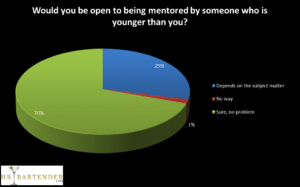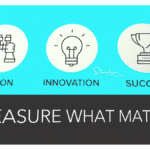As promised, I wanted to share the results of our completely unscientific poll on reverse mentoring.
Clearly, people are open to being mentored by someone younger in age. Which again prompts the question: Why call it reverse mentoring? I’d suggest out of respect for the person in the mentor role…let’s just call them such. Age is no longer a part of the mentoring equation. It’s about expertise.
Speaking of the criteria for selecting a mentor, check out Alexandra Levit’s latest post on the Intuit blog. She talks about what you should look for in a mentoring relationship. There are some nice tips to consider.
Thanks to everyone who participated in the survey!








Corey Feldman says
I definitely mentor people that are older and younger then me. Have for years, age hasn’t been much of a factor since early on in my career.
Sharlyn Lauby says
@Corey – Thanks for the comment. I sometimes feel the whole “generations in the workplace” conversation has done more to keep us in age silos than to break down barriers.
Rey Carr says
Reverse mentoring has been around for a while even before Jack Welch made the term popular. However, it also has another less known meaning. Reverse mentoring has also been used to mean that you see someone acting in a way that you don’t like, don’t want to be like, etc. and you commit yourself to doing the opposite. In other words that person, by their actions, has helped you learn to act in reverse of what they typically do; thus “reverse mentoring.” Think how many times in your life a person may have acted as a reverse mentor?
Sharlyn Lauby says
@Rey – Thanks for sharing. I hadn’t heard of reverse mentoring used in that context before. But it’s so true. I’ve learned just as much (if not more) from people I didn’t want to emulate.